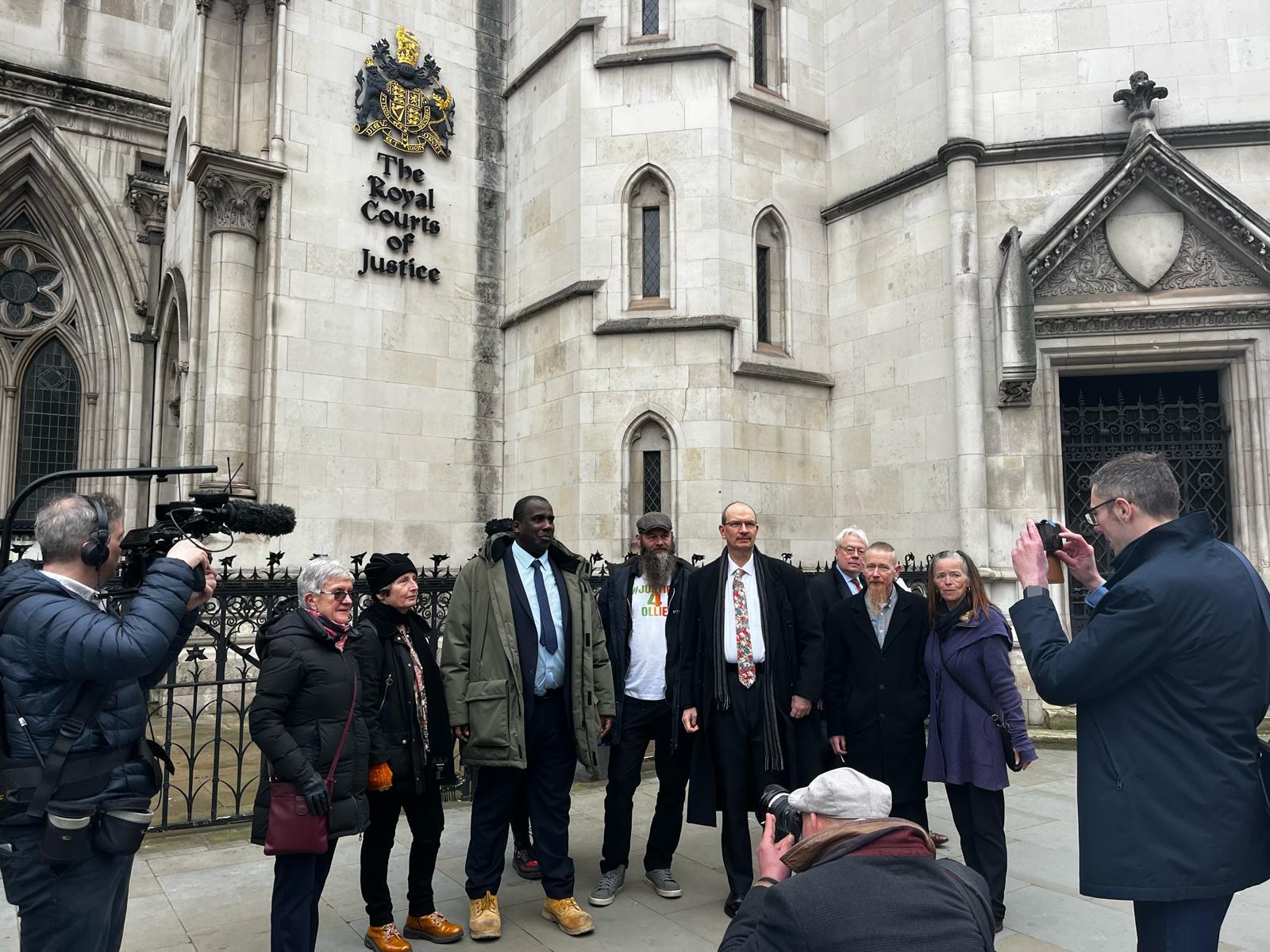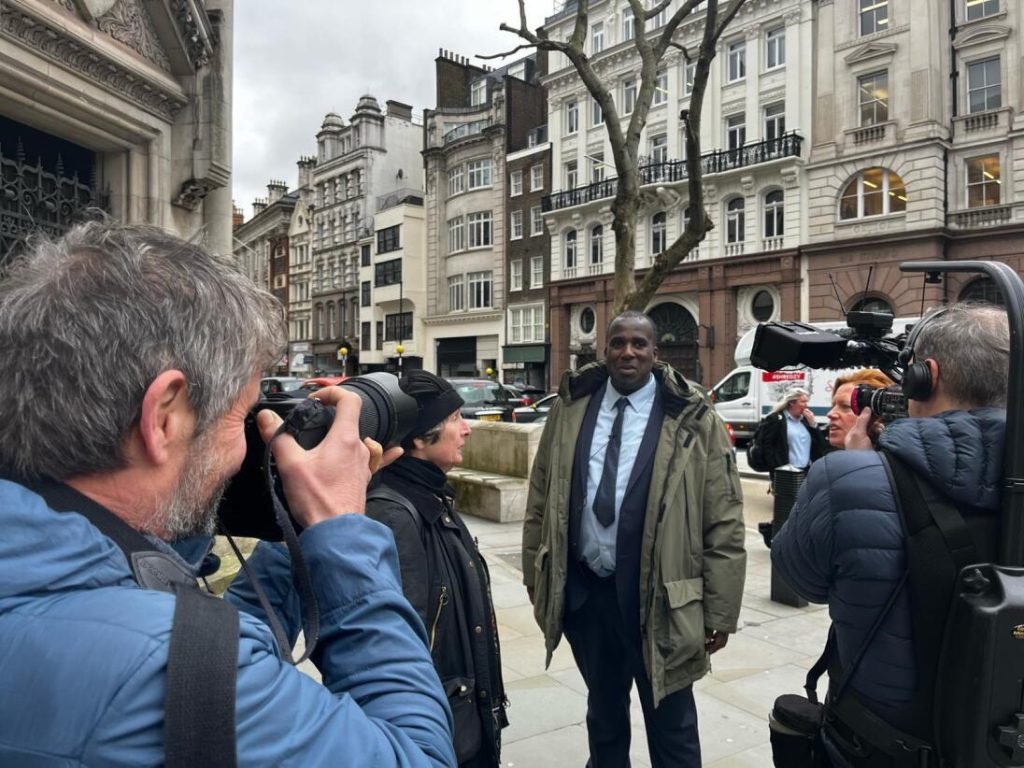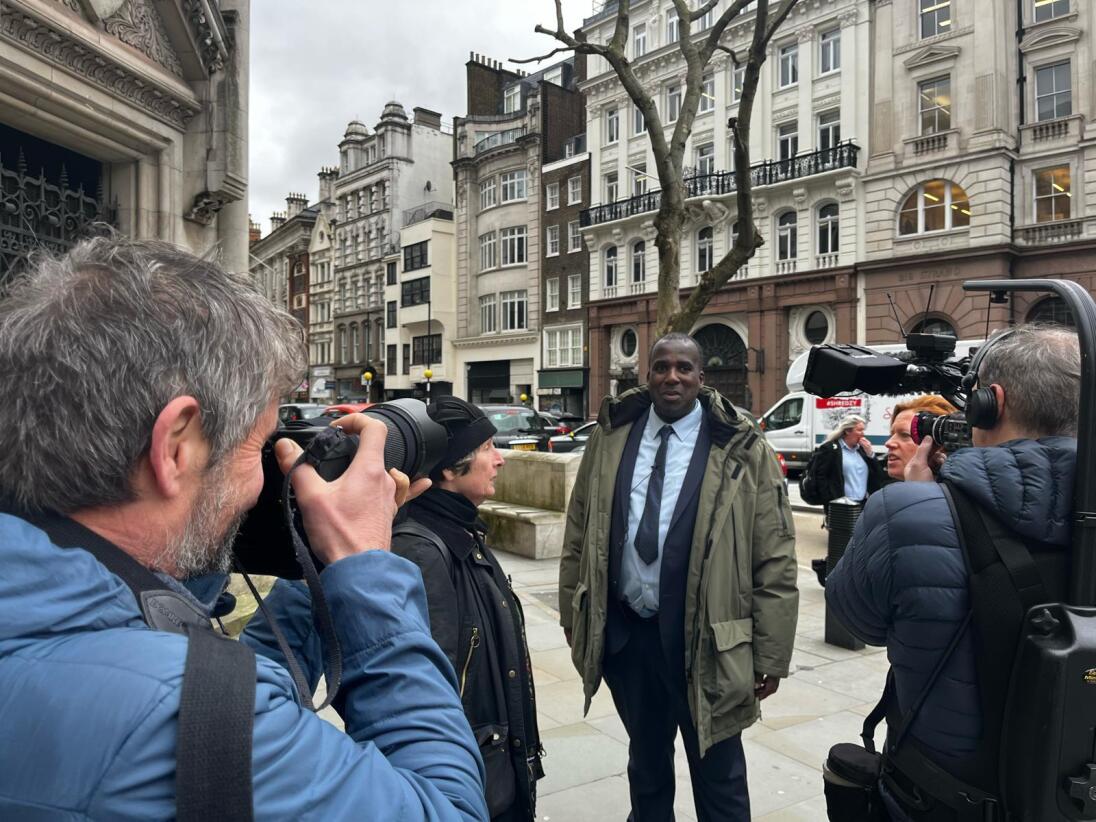In 1991, 19-year-old Oliver Campbell was convicted of murder and conspiracy to rob. He spent 12 years in prison. In 2025, his conviction was quashed, following new psychological evidence that revealed the true extent of his severe learning disability. The main piece of evidence against Oliver was his own confession. Many people have asked: why would anyone confess to a crime they didn’t commit, it doesn’t make sense? This paper seeks to answer that question in this case – with wider implications for other false confessions and why the police and others may be deceived by them.
Oliver Campbell’s learning disability stemmed from neurological damage to the left hemisphere of his brain, sustained during infancy and exacerbated by long-term institutional neglect. He grew up in children’s homes as a young Black man in East London in the 1970s and 1980s. He experienced profound social and racial disadvantage. This paper presents evidence that his intersecting vulnerabilities—neurological, developmental, and socio-cultural—rendered him especially susceptible to coercion during police interview.
Using psychological and linguistic analysis, this paper explores how language breakdown, emotional confusion, and social compliance were misread by the police as guilt. Oliver Campbell did not confess because he was guilty. He confessed because he could not resist the police suggestion, could not explain himself, and did not understand the consequences of his words.
- Dr Alison Beck gave critical evidence before the Court of Appeal in the Oliver Campbell case that led to the overturning of his conviction.
- Dr Beck is a consultant clinical, forensic and neuropsychologist and systemic psychotherapist. She has worked in clinical practice for the NHS for over 30 years and for further years in other countries. She recently retired from Director of Psychology and Psychotherapy at South London and Maudsley NHS Trust. She continues to provide expert assessments and evidence in medico legal cases which she has done throughout her career. She also continues to add to her long list of academic publications. She has worked for charities and in the humanitarian sector in a number of countries and takes a keen interest in human rights.
- Oliver Campbell’s case has featured extensively on the Justice Gap: you can hear Oliver speak in our podcast; read Nicholas Reed Langen’s long read in the latest issue of PROOF magazine; and Jon Robins’ on concerns about the Court of Appeal’s ‘narrow’ and ‘begrudging’ judgment (‘So much was missed’).
 This report does not outline my views about the behaviour of the police. There were clear contraventions of Police and Criminal Evidence Act (PACE) Code C. In this report, I seek to highlight, including to the police, the ways in which they compromised the reliability of their own evidence by encouraging Mr Campbell to confess in the way that they did.
This report does not outline my views about the behaviour of the police. There were clear contraventions of Police and Criminal Evidence Act (PACE) Code C. In this report, I seek to highlight, including to the police, the ways in which they compromised the reliability of their own evidence by encouraging Mr Campbell to confess in the way that they did.
Introduction: The Wrong Kind of Confession
There are many reasons people confess to crimes they didn’t commit. In Oliver Campbell’s case, the explanation for his confession lies in misunderstanding, social compliance, and his communication style being catastrophically misread.
In 1991, he was interrogated by the police using techniques resembling the Reid Technique—confrontational, guilt-presumptive, reliant on suggestion, minimisation, and emotional pressure. In the most critical interview, he was questioned without a solicitor or a trained appropriate adult and with only his foster mother present—a figure he loved and feared disappointing. Oliver confessed. Not because he was guilty. But because the language, emotional pressure, the presence of his foster mother, and his own confusion broke down his ability to assert, deny, or resist.
In 1991 Oliver Campbell was briefly assessed as ‘not suggestible’ using the Gudjonsson Suggestibility Scale (GSS). The GSS remains the industry standard tool for the assessment of suggestibility, however as with all psychometric tools, it cannot be relied upon in isolation. Unfortunately for Mr Campbell the result of this short test was perhaps misunderstood. The fact that Mr Campbell was ‘not suggestible’ on this measure did not mean that he was not vulnerable to making a false confession. This tool alone cannot sufficiently explain the vulnerabilities that may make an individual unable to give reliable evidence.
This article reconstructs how and why Oliver’s false confession occurred, with implications for current police practice.
Method: A Mirror of Power, Ethically Contained
To understand Oliver Campbell’s communicative vulnerability, I developed a structured interview process that recreated the emotional and linguistic dynamics of the original interrogation, but within an ethical framework. I did not ask Oliver to discuss the crime. Instead, I tested his responses to false memories, emotional pressure, and ambiguous instructions which mimicked those in the original police interview. What emerged was a demonstration of how and why a false confession might occur in a person with Oliver Campbell’s profile.
The Role of Racialised Experience
Oliver Campbell’s status as a young Black man in 1980s East London shaped every element of his experience, from how he was institutionalised as a child to how his communication style was perceived by the police. The social expectation placed on Black boys in care settings to be compliant, non-disruptive, and emotionally self-contained meant that Oliver developed habits of affiliative behaviour that masked distress. When he mirrored or echoed authority figures, it was not a strategy of evasion, but one of survival.
Police perceptions of Black suspects are also shaped by implicit racial bias—research has repeatedly shown that Black individuals are more likely to be perceived as deceptive, threatening, or evasive under stress. In Oliver’s case, he is a large man who calls himself ‘the BFG’. His fragmented speech, difficulty explaining himself, and reluctance to resist were not read as signs of vulnerability but interpreted through a lens of suspicion.
It is essential to recognise that race, disability, and trauma are not separate factors. They interact—and in this case, that interaction created a perfect storm of misunderstanding.
Oliver Campbell’s Profile: A Perfect Storm of Vulnerability
- Expressive Language: Fragmented and Circular
Oliver often speaks in incomplete, one-clause sentences, especially under stress. In interview, his speech appears hesitant, fragmented, and unstructured, reflecting narrative breakdown. The police may have misinterpreted this style as evasiveness, rather than what it was: a consequence of reduced working memory, weak sequencing, and word retrieval deficits linked to left hemisphere damage.When asked to describe what he had seen on a screen during an online meeting, he said, ‘It’s got a bell. Not … it’s got some notification, that one.’ The lack of subject and reference, together with repetition and false starts, reveal his difficulties with expressive language.Under pressure, his sentence structure deteriorates further and becomes circular. He is more likely to use vague placeholders such as ‘the thing’ or ‘you know’ and to begin a sentence without a clear sense of how it will end. This creates an impression of avoidance or deception, when in fact it reflects an overwhelmed verbal system. The more emotional the situation, the more likely this breakdown becomes.
- Narrative Construction: Disjointed and Ungrounded
In our interviews, Oliver struggled to anchor his stories in time, place, or consequence. His inability to provide coherent timelines or causal logic may have made his responses appear inconsistent or suspicious to the police. In fact, they are more likely to have reflected his impaired spatial and temporal cognition under stress. When I asked him to recall the familiar sequence of making a cup of tea, he left out key steps, reversed the order, and changed details. Underlying this is a problem with temporal scaffolding—the ability to mentally line up events in a clear progression. In the interrogative interview setting, this meant that even when Oliver tried to describe where he had been or what he had done, the resulting story had gaps and contradictions. This may have led investigators to wrongly suspect dishonesty.
- Receptive Language: Literalism and Passive Acceptance
Oliver Campbell rarely asks clarifying questions. If told, ‘we found your fingerprints’, he would be likely to accept this as fact, without query. He lacks the ability to critically evaluate such claims.Importantly, it is worth stating that Oliver Campbell never believed he actually committed the murder for which he was convicted. When he confessed to the crime, he simply joined the narrative offered to him by the police, as a way to reduce his own stress.In structured interview simulations, I tried to recreate this. I told Oliver that we had met before in a fish shop. Despite this being untrue, he did not challenge me but simply said he couldn’t remember the event. Over time, he elaborated, describing what he had bought and other events around the time. He wasn’t lying—he was using the emotional and linguistic cues available to him to build a cooperative narrative. In the police interview, the same thing occurred. He treated their assumptions not as things to dispute, but as things to help with. Compliance in this context was not passive: it was an active strategy to reduce anxiety, avoid shame, and sustain a relationship with authority figures. When he tried to push back his attempts were unsuccessful, so he reverted to his preferred affiliative strategy.
- Understanding His Role: Helping, Not Defending
The reader needs to understand Oliver Campbell’s mindset at the time of the police interviews; a mindset which persists to the present. To do this it is important to understand that it was adaptive for Oliver, whilst growing up a relatively helpless and confused young man with severe learning and social disadvantages, to join in and support the narratives of others. He did not, and does not, generally confront or challenge. He knows that only other people can solve many of the problems in his life and he needs to form affiliations with them to get the help he needs. He does not do this consciously. He does not really understand his limitations. He simply sees himself as being helpful.At the time he was originally interrogated, Oliver viewed himself as helping the police. He did not think he needed to defend himself against their narrative. He saw the police as responsible for getting to the truth. He did not think this was his task. He described his role as ‘just helping’ and believed they would ‘do the research’. He didn’t understand that his words might constitute legal evidence which could form the basis for his conviction. He responded relationally to the demands of the police. He did not respond factually.This relational compliance is key. Oliver’s false confession did not represent a personal belief that he was guilty. He knew he wasn’t. It was a social act aimed at reducing his emotional discomfort. He offered an implausible story including describing an absurd string contraption to hold the gun he claimed to have used with his weaker right arm to kill the victim. Mr Campbell’s right arm is weak a result of his left hemisphere brain damage. His brain damage means that he has a life-long preference for using his left hand. It should have raised alarm bells to the police that he confessed to a killing using his right hand. This was improvisation under pressure, not a recollection of events.Oliver Campbell imagined that someone else would sort out the truth later. In this way, he was not trying to protect himself or even speak on his own behalf. He was trying to perform the part of the cooperative suspect.
- Pragmatic Language: Affiliative, Not Assertive
Oliver Campbell uses language to connect with people, not to clarify matters. In interview with me, he mirrored my emotional tone and vocabulary, creating the illusion of understanding. This pattern, shaped by his time in care, was a survival strategy. His ‘yeah, yeah’ was not agreement—it was an attempt to stay safe, remain included and not be forgotten.When I gave Oliver complex or emotionally charged questions, he would often nod, laugh, or respond with generic phrases like ‘you know how it is’. In one test interview, when he did not understand a hypothetical question, he smiled and said: ‘Well, maybe that’s what happened’, followed by a nervous laugh. At other times he made jokes to distract or lighten the mood. These responses made it appear that he understood and agreed, when in fact he was guessing or disengaging. In police interviews, this could have been mistaken for calm, competent engagement.This tendency to mirror language and tone, while intended by Oliver as a way to maintain rapport, may have frustrated the interviewing officers. When he echoed their phrases—without elaboration or clarity—it could appear mocking, evasive, or even manipulative. For example, if a detective said, ‘You were seen near the shop’, and Oliver replied, ‘Yeah, near the shop’, without offering further detail, it might be read as parroting or stonewalling. His laughter, when uncertain or anxious, might also seem inappropriate or provocative in a high-stakes situation. This disconnect between his intent (to appease) and how it was perceived (as obstructive) likely contributed to escalating tension in the room. - Emotional Insight and Alexithymia
In interview with me, Oliver showed marked alexithymia: an inability to identify and articulate his emotional states. He did not say, ‘I’m scared’, or ‘I don’t understand’ because he did not recognise these states in himself.Alexithymia is common in individuals with early neurological injury, particularly those affecting the left hemisphere, including areas such as the anterior insula, ventromedial prefrontal cortex, and left inferior frontal gyrus. These brain regions are involved in recognising, processing, and labelling emotional states—both in oneself and others. When damaged, the result is often a flattened internal awareness of emotion. This means individuals may feel physical symptoms of distress—such as tension or discomfort—but lack the vocabulary or conceptual framework to name what they are experiencing. In Mr Campbell’s case, the result was an emotional vocabulary limited to terms like ‘I feel weird’ or ‘I didn’t feel nothing’, even when describing highly stressful or traumatic events.Instead of explaining that he was scared or confused (objective descriptions of his likely internal state but not feelings Oliver can identify in himself), Mr Campbell tried to help the police by offering the next plausible sentence to keep the interaction going. This strategy—filling conversational gaps with plausible-sounding statements—may have misled the police into thinking Oliver Campbell had genuine recall of events. However, his sentences were not based on memory, but on his reading of what might be expected or acceptable in that moment. For example, if asked, ‘What happened next?’ he might respond with a general or invented answer like, ‘Then I think I left’, simply to sustain the flow of dialogue. To officers, this might have sounded like a hesitant but truthful account, when in fact it was a placeholder to mask Mr Campbell’s confusion and distress. The problem is that the language of plausibility can easily resemble the language of fact—making it extremely difficult to distinguish a coping mechanism from a confession.When asked later whether he had been upset or angry during the interviews, Oliver Campbell responded: ‘I just wanted to get out.’ That statement has no emotional content—but it contains deep truth. In his mind, the goal was to escape the interaction. He could not say: ‘I feel ashamed’, or ‘I’m confused’, because those emotions were not available to him in language. Instead, his responses became narrower and simpler.
As the pressure in the interview built, his ability to communicate decreased. His confession emerged not from insight or acceptance, but from a place of cognitive and emotional collapse. He wanted to end the interaction in the only way he knew how—by complying.
 Why would someone confess to a crime they didn’t commit?
Why would someone confess to a crime they didn’t commit?
Oliver Campbell’s confession was not a statement of guilt. It was a performance—an attempt to end the unbearable pressure of a situation he didn’t understand. He knew he had not committed the crime. But he also knew, with growing unease, that the police believed he had. As the interview progressed, he found himself trapped in a dynamic where the only visible route to safety was agreement.
The presence of his foster mother only added to the emotional weight he had to bear. He may have been ashamed to appear confused in front of her, but if that were the case he would likely not have recognised that emotion in himself. He may simply have experienced a growing need to end the interviews any way he could. He couldn’t ask for clarification or say that he didn’t understand because he did not recognise these feelings in himself. So, he did what he had learned to do in every other difficult setting in his life—he made the pressure stop. He gave them what they seemed to want: a story. Not a true story, not a memory—but a plausible, improvised version of what might have happened, loosely based on what he was being told.
To an outside observer, this confession might look like an expression of guilt. But to Oliver Campbell, it was a way to protect himself and his foster mother. He didn’t believe he was helping convict himself. He thought the police would eventually ‘do the research’. His aim was simply to survive the moment.
Oliver Campbell’s confession was not a lie in the traditional sense. It was a coping mechanism—an act of social compliance in the face of overwhelming stress and limited emotional insight.
The police misreading: performance as proof
During their original investigation the police officers missed key signs of Oliver Campbell’s cognitive and emotional distress. If they had picked up on these, they may have recognised the unreliability of the evidence offered in his confession.
Oliver Campbell’s odd, physically impossible story about using a string contraption to hold the gun, for example, should have raised concern. Instead, it was accepted as evidence.
Perhaps the police saw his repetition of their phrases as memorisation —a sign that he had rehearsed a version of events. In police investigative culture, repetition is often associated with coached testimony. When a suspect repeats a particular phrase or detail, officers may believe they are drawing from a pre-constructed script rather than spontaneous recall. In Oliver Campbell’s case, this belief would have clearly been misplaced. Oliver repeats phrases because he lacks the linguistic flexibility to paraphrase them. His repetition in police interview was a direct consequence of reduced verbal fluency and cognitive fatigue—not a sign of deception or planning. His use of police vocabulary was mirroring, not mastery.
The police may have interpreted his fragmented account as a sign of evasion. In reality, his fragmented account was the result of impaired narrative coherence—a core difficulty for individuals with executive dysfunction. Oliver Campbell cannot sequence events or link actions clearly in time. His stories jump between unrelated points. He misses steps, and his narrative often lacks resolution. Under pressure, his ability to hold a coherent line of thought deteriorates further. What may have sounded to the police like avoidance was in fact disorganisation: a breakdown in mental planning and verbal structuring caused by neurological and emotional overload.
Oliver Campbell is not a generally quiet person—he is sociable and talkative in everyday situations. Nevertheless, he sometimes goes silent on specific topics when overwhelmed or unsure. In the police interviews, this selective silence may have been interpreted as guilt. In reality, it reflected moments when his emotional and cognitive systems could no longer process the demand for speech. Faced with accusations he could not understand or rebut, he became silent—not to hide anything, but because he was mentally and emotionally paralysed. This silence was not withholding. It was a form of shutdown. His quietness, however, may have been taken as guilt.
While repetition and mirroring can overlap, they are not the same. Repetition refers to using the same words or phrases multiple times, often due to limited expressive capacity or cognitive fatigue. Mirroring, by contrast, involves unconsciously adopting the language, tone, or emotional cues of the interviewer. In interview with me there were many examples of mirroring. I believe Oliver also mirrored the police officers during the original investigation. He did not do this to deceive them, but to maintain rapport and avoid conflict. This involved echoing phrases without understanding, nodding in agreement to preserve the social flow, or adopting the interrogator’s urgency and emotional tone. The result may have appeared rehearsed or artificial to officers, but it was in fact a reflection of Mr Campbell’s deep need to affiliate and appease. Without training in pragmatic communication differences, officers may not have recognised this as a red flag for vulnerability.
The police mistook the structure of Oliver Campbell’s communication for the substance of truth. They focused on the presence of speech—on the surface coherence of words strung together—without considering whether those words were rooted in memory, comprehension, or volition. Oliver Campbell’s speech had form, but no anchor. His attempts to mirror tone, repeat language, and construct plausible sentences made him appear engaged and responsive. But this engagement was an illusion—what psychologists sometimes call a ‘false fluency.’ It’s a style of speech that masks uncertainty, and in vulnerable individuals, it often conceals deep confusion. In failing to distinguish this, the police missed the most vital clue: that Mr Campbell was not demonstrating understanding or recall, but enacting submission. In doing so, they failed to see the most important signal: that this was a vulnerable young man trying to please them by saying whatever would end the interview—not a man remembering a crime he had committed.
The role of shame in the key interview
Oliver Campbell’s foster mother, though well-meaning, was untrained and could not act as an appropriate adult because she could not recognise Oliver’s vulnerabilities and help to ameliorate them. In fact, her presence had the opposite effect and amplified the unreliability of his evidence by increasing his sense of shame. Oliver Campbell didn’t confess to satisfy his own guilt. He confessed to escape the unbearable and shaming social situation and to help his foster mother do the same.
The role of shame in Oliver’s key interview cannot be overstated. Although his foster mother was present as a supportive figure, she lacked the training and awareness to act as a true safeguard. Her role, while emotionally meaningful to Mr Campbell, was not a relief. It was a silent source of pressure. Her presence activated a powerful fear in him — fear of disappointing her, fear of looking stupid or guilty, and fear of being exposed as confused or incapable. Because he could not name or understand these emotions, they built up into an overwhelming internal state of distress.
This shame did not present as tearfulness or apology—it presented as withdrawal, silence, or performance. This is the story of a young man paralysed by the conflict between wanting to appear competent and wanting to escape. His instinct to appease kicked in: say something plausible, say anything that will resolve the moment. He wasn’t confessing to wrongdoing. He was responding to a relational crisis—one shaped by years of unmet needs and social conditioning.
In this context, the interview became less about facts and more about emotional management. Mr Campbell’s shame and confusion merged, leaving him unable to ask for clarification, assert his truth, or resist suggestions. His foster mother, untrained in recognising these dynamics, could not intervene. Instead of shielding him, her presence deepened the collapse. And from that collapse, the confession emerged—not from guilt, but from a desire to help her, to end his own distress, and to comply with the police.
As the pressure in the police interrogation built, his ability to communicate decreased. His confession emerged not from insight or acceptance, as the police may have believed, but from a place of cognitive and emotional collapse. He wanted to end the interaction in the only way he knew how—by complying.
The interview technique: A system set to fail
At the time of the original investigation, the officers relied on interview strategies that were not just outdated but demonstrably risky for someone with Mr Campbell’s profile. These techniques included repeated accusations, assertion of false evidence, minimisation of culpability and urgent appeals for cooperation. Each of these tactics has been shown in research to increase the risk of false confession—especially among individuals with learning disabilities or communication vulnerabilities (Kassin, S. M., & McNall, K. (1991). Police Interrogations and Confessions: Communicating Promises and Threats by Pragmatic Implication. Law and Human Behavior, 15(3), 233–251; Kassin, S. M., & Gudjonsson, G. H. (2004). The Psychology of Confessions: A Review of the Literature and Issues. Psychological Science in the Public Interest, 5(2), 33–67).
For example, when police repeated the same allegation multiple times, Mr Campbell interpreted this not as pressure to resist, but as an indication of what they wanted to hear. When they presented false claims—such as implying they had physical evidence linking him to the scene—he lacked the critical questioning capacity to challenge them. Minimisation tactics, such as suggesting the act may have been a mistake or that honesty would ‘help him’, triggered his compliance reflex. He was not thinking legally; he was responding emotionally.
Oliver Campbell did not resist. He complied. But that compliance did not reflect understanding. It was a form of surrender, shaped by neurological impairment, emotional overload, and years of learned submission. In that room, the very structure of the interview—its assumptions, pacing, and emotional tone—set him up to fail. Rather than uncover truth, it elicited a performance.
What the police missed—and why it matters
Throughout the interview process, police probably misread key features of Oliver Campbell’s communication profile leading them to the false conclusion that he was guilty. They may have interpreted repetition as a ‘practiced lie’, when in reality it was a form of mirroring—his way of staying socially connected in a high-pressure interaction. They possibly viewed his fragmented answers as evasive, when they were in fact symptoms of narrative disorganisation and executive overload. Most crucially, they saw his apparent compliance as an admission of guilt, when it was actually a behavioural strategy designed to manage stress and end a distressing encounter.
What the officers failed to recognise was that Oliver Campbell’s responses were not built on memory or intention, but on emotional survival. His behaviours were typical of someone with significant cognitive and communicative vulnerability—a person whose instinct under pressure is to appease, not resist.
This failure to recognise Mr Campbell’s vulnerability had profound consequences. The confession, extracted not through truth-seeking but through pressure and misunderstanding, became the cornerstone of his wrongful conviction. It is a stark reminder that when investigators confuse surface behaviour for substance, they risk mistaking a person’s distress for guilt—and losing sight of justice altogether.
A better way forward
To prevent future miscarriages of justice, this paper demonstrates a clear need for better understanding of suspects’ cognitive vulnerabilities at intake. It demonstrates the use of narrative and emotional assessments to gauge the vulnerability of suspects.
I would recommend police are better trained to identify these vulnerabilities and to understand their implications for how performance in interrogation is understood.
There should be automatic review of any confession by someone identified (as Mr Campbell was) by a medical/clinical practitioner as having a cognitive or developmental disorder. This could provide an additional important safeguard.
Over-reliance on one tool (such as the GSS) cannot explain human variation. Intermediaries or appropriate adults need to be trained in the particular and unique vulnerabilities of each client so that ameliorating their difficulties truly assists both the client and the police in obtaining reliable evidence.
PACE clearly bans coercive, leading techniques in vulnerable cases. This paper demonstrates why this is so important.
Conclusion
Oliver Campbell’s words were misunderstood because the system lacked the tools—and the will—to understand them. His confession was a mirror of his lifelong survival strategies: appease, comply, smooth the room.
What he said, and how he said it, must be reinterpreted through the lens of neurodevelopmental disability, institutional neglect, and racialised social disadvantage. Until we listen to how people speak—not just what they say—we risk mistaking distress for guilt.
Oliver Campbell did not fail the system. The system failed him.
Recommendations to Guard Against False Confession-Based Convictions
- Require a mandatory cognitive communication screening at the point of arrest or first interview using validated tools administered by trained professionals.
- Independent expert review of all confession-based interviews to consider communication style of the suspect or whether there is evidence, for example, of phenomena such as false fluency, mirroring, or narrative collapse.
- Introduce a rebuttable presumption that the confession is unsafe unless tested by independent means. Require expert testimony at trial to explain false confession risk to the jury.
- Strengthen the PACE Code C provisions by creating a statutory obligation to assess how the confession was obtained (eg what communication or emotional challenges were present? Was the suspect mirroring, complying, or improvising under distress?). Allow judges to exclude confessions where evidence of vulnerability or coercion is clear, even if legal procedures were technically followed.
- Require officers and CPS prosecutors to complete a “Confession Reliability and Vulnerability Checklist” for all cases where a confession is key eg. Did the suspect mirror or echo statements? Were there signs of narrative disorganisation or shutdown? Were minimisation or repetition techniques used? Was the confession consistent with physical or forensic facts?
- Provide judges and magistrates with training on false confessions, especially in the context of learning disabilities and emotional vulnerability.
- Require judges to give jury directions that explicitly warn: “A confession may be false, particularly in individuals with cognitive or communication impairments. Signs like apparent calm, compliance, or repeated agreement do not necessarily indicate truthfulness.”
- Post-conviction safeguards which allow conviction reviews to be triggered by new psychological evidence (e.g., findings of undiagnosed learning disability, alexithymia, suggestibility). Ensure the Criminal Cases Review Commission (CCRC) has access to specialists in neurodivergence and communication.
Dr Alison Beck, Consultant Clinical, Forensic and Neuropsychologist
Support the Justice Gap, buy PROOF magazine








